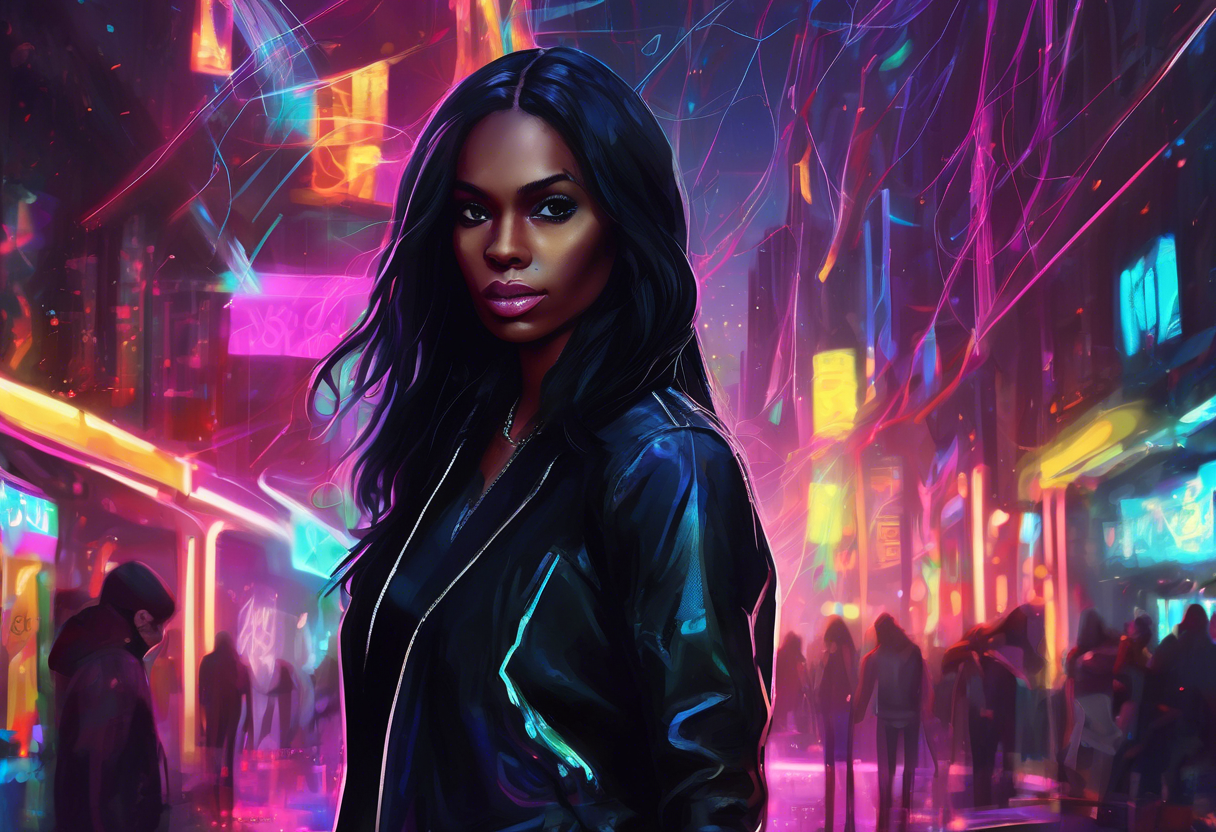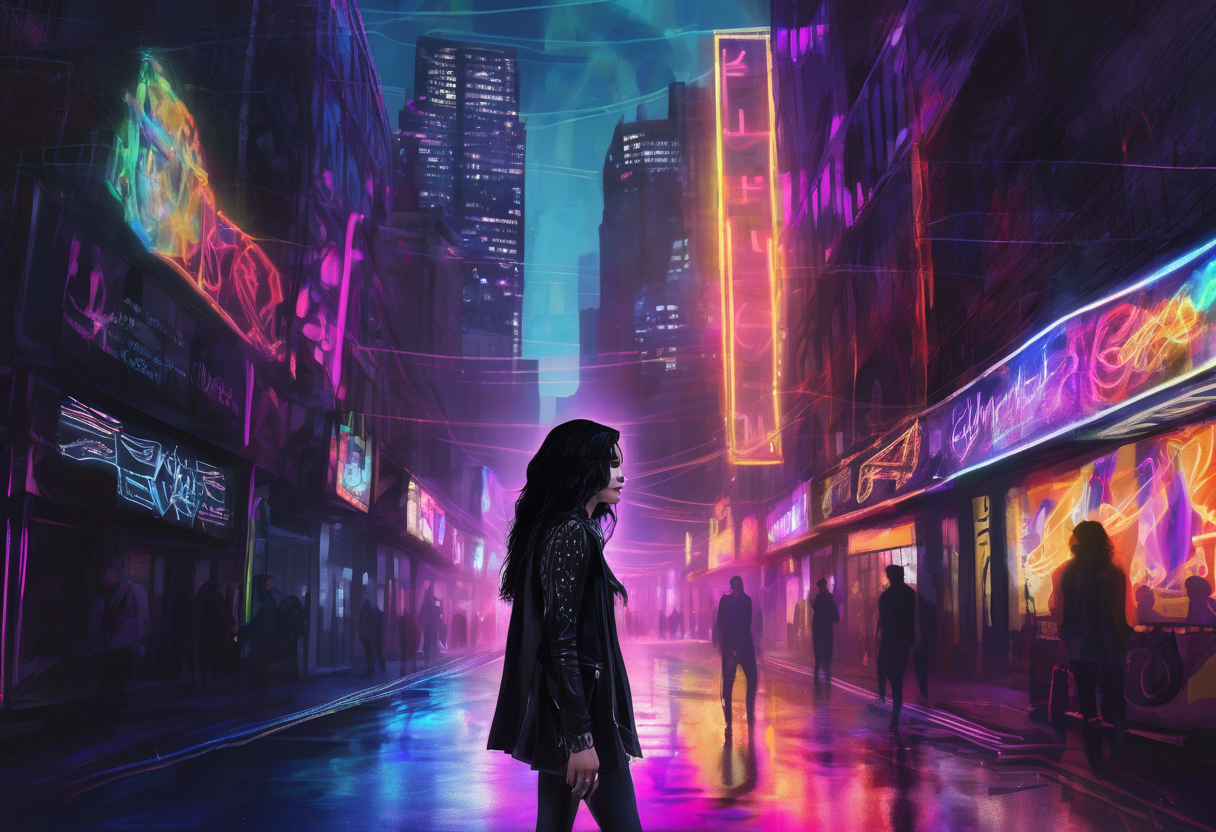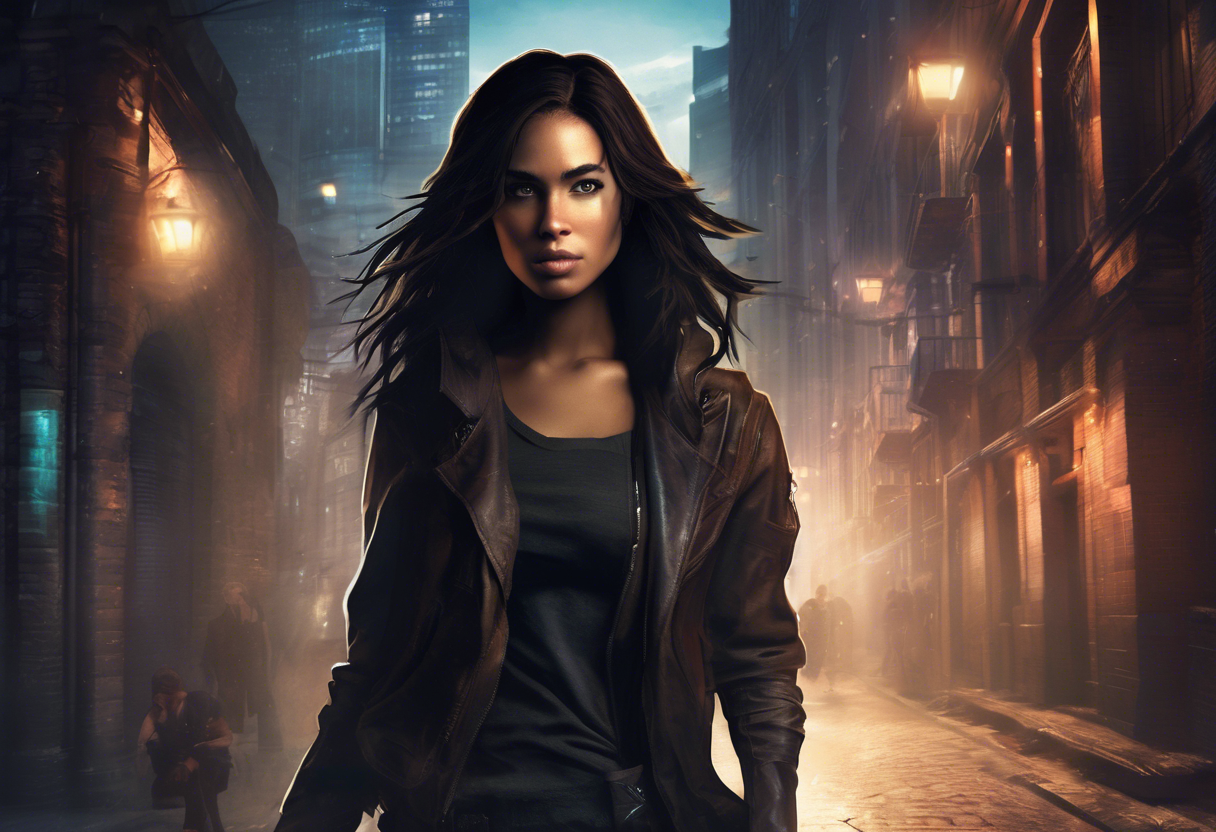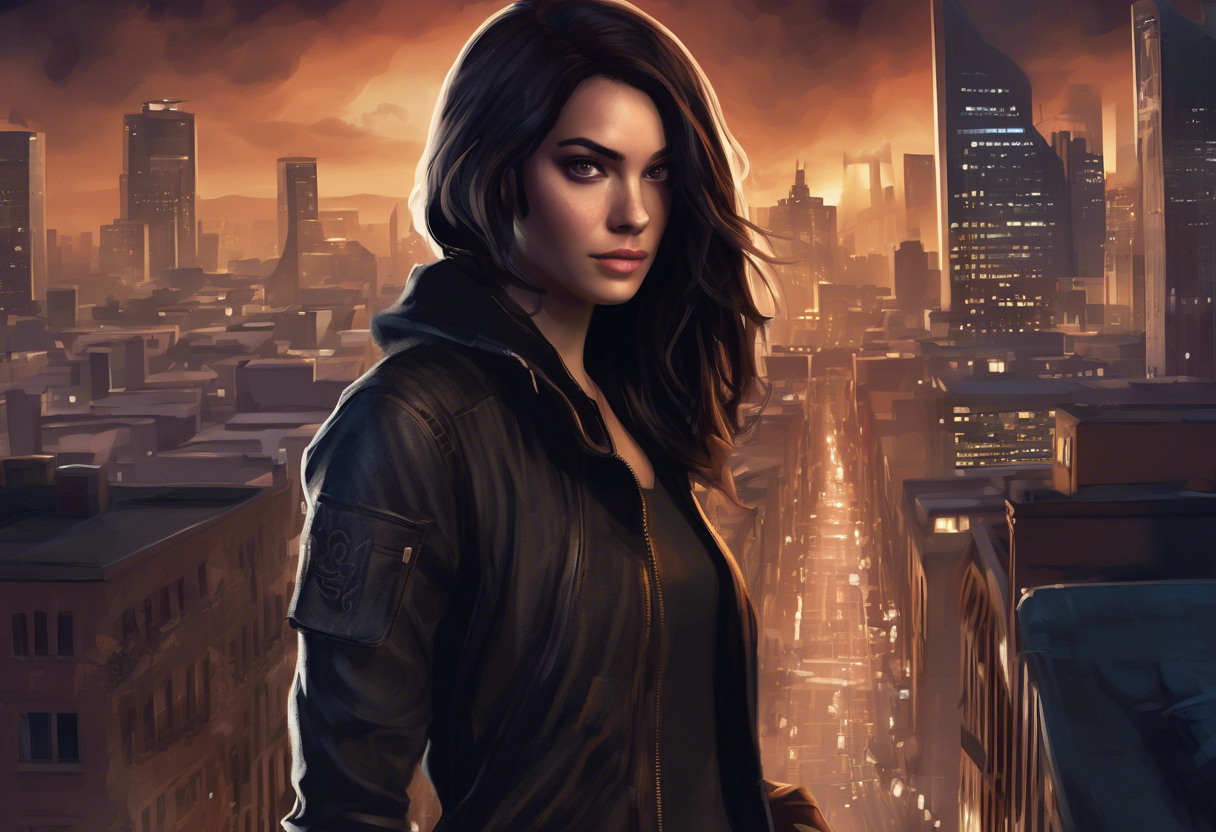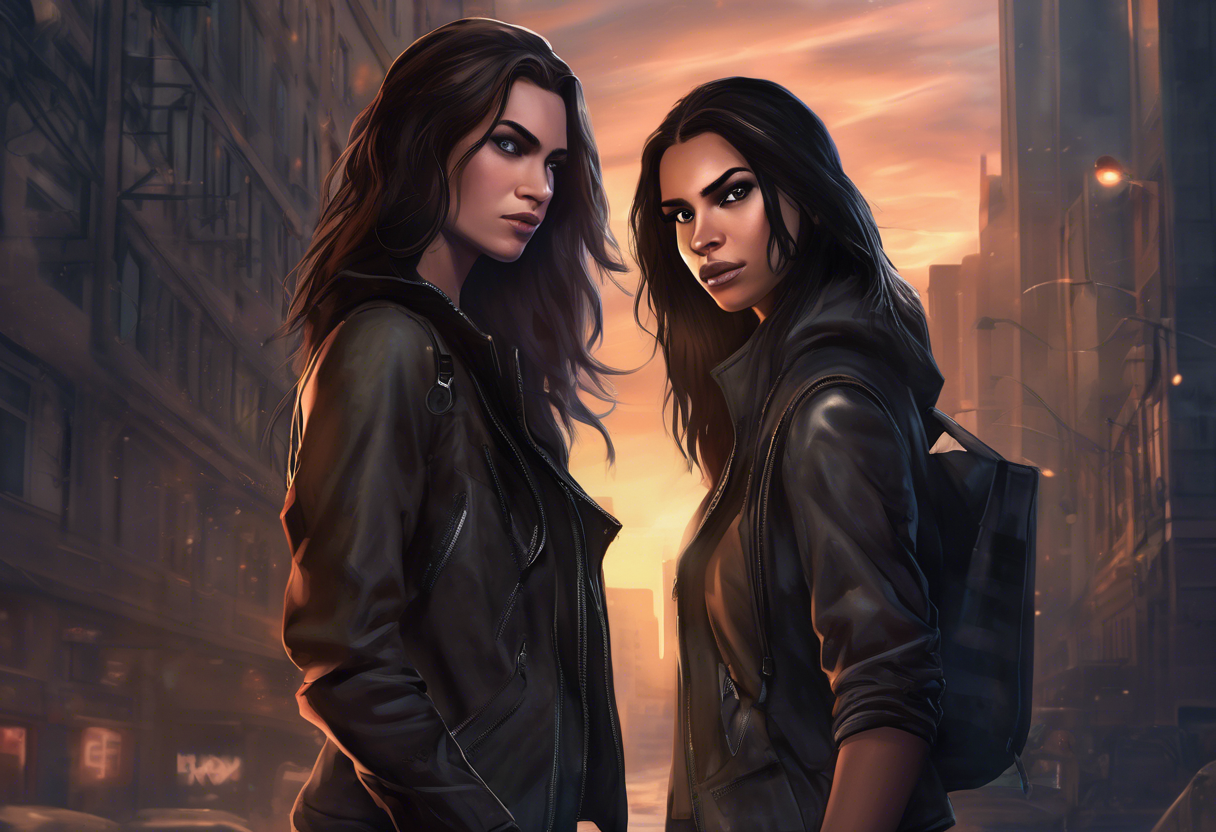Contents
Diana Wrayburn: A Comprehensive Analysis of the Shadowhunter Tutor
Introduction
Diana Wrayburn is a significant character in Cassandra Clare’s "The Dark Artifices" series, which is part of the larger "The Mortal Instruments" universe. Originally a Shadowhunter who ran a weapons shop called Diana’s Arrow in Alicante, Diana’s life takes a pivotal turn when she volunteers to be stationed in Los Angeles to become the tutor of the Blackthorn children after the Dark War [1][4].
Diana’s character is notable not only for her role in the narrative but also for her personal journey and the broader themes she represents. As the first transgender character in Cassandra Clare’s books, Diana’s storyline is deeply intertwined with themes of identity, acceptance, and the complexities of the Shadowhunter world.
Role in the Story
Diana Wrayburn’s storyline is intricately linked with the Blackthorn family, particularly Julian and his siblings, whom she tutors at the Los Angeles Institute. Her role as a tutor is more than just educational; she provides emotional support and guidance, helping the children navigate the challenges of being Shadowhunters [4].
One of the key aspects of Diana’s journey is her decision to undergo medical transition using mundane medicine, a choice that leads to her estrangement from the Clave. The Clave’s rejection is not due to her being transgender but because she used mundane methods, highlighting the Clave’s rigid adherence to their own laws and their lack of understanding or acknowledgment of transgender individuals [3].
Diana’s relationships with other characters are also pivotal. She is particularly close to the Blackthorn children and plays a supportive role in their lives. Her love interest, Gwyn ap Nudd, the leader of the Wild Hunt, adds another layer to her character, exploring themes of love and acceptance in a world where such relationships are not always straightforward [3].
Character Analysis
Diana Wrayburn is a complex and multifaceted character, defined by her strength, resilience, and compassion. Her personality is marked by a deep sense of responsibility and a strong moral compass, which guides her actions throughout the series.
One of Diana’s greatest strengths is her ability to connect with others, particularly the Blackthorn children, whom she helps through their various struggles. Her empathy and understanding make her a beloved figure in their lives. However, her flaws include a tendency to keep secrets and a struggle with the consequences of her choices, such as her decision to use mundane medicine for her transition [3][5].
Diana’s character development is significant as she navigates the challenges of being a Shadowhunter and a transgender individual. Her journey is marked by moments of vulnerability and strength, making her a compelling and relatable character to audiences.
Themes and Symbolism
Diana Wrayburn embodies several key themes in "The Dark Artifices" series. One of the most prominent is the theme of identity and acceptance. Her journey as a transgender character highlights the struggles of finding one’s true self in a world that may not always be accepting. This theme is particularly relevant in the context of the Shadowhunter world, where traditional norms and laws often conflict with personal identity [3].
Another theme associated with Diana is the concept of responsibility versus personal desire. Her decision to use mundane medicine for her transition, despite knowing the potential consequences, reflects her personal desire for authenticity and self-acceptance. This decision also underscores the broader theme of challenging established norms and seeking one’s own path [3].
Cultural Impact
Diana Wrayburn’s introduction into the "Mortal Instruments" universe has had a significant cultural impact. As the first transgender character in Cassandra Clare’s books, Diana’s storyline has been widely praised for its representation and sensitivity. Clare’s collaboration with transgender readers to ensure the accuracy and respectfulness of Diana’s character arc has been particularly noted and appreciated [3].
In terms of fan reception, Diana has been well-received for her authenticity and the depth of her character. Her portrayal has contributed to a broader discussion about representation in literature and media, highlighting the importance of inclusive storytelling.
Critical Reception
Critics and audiences have generally praised Diana Wrayburn’s character for its nuanced portrayal and the significant contribution it makes to the series. The decision to include a transgender character and to handle the subject matter with care and sensitivity has been widely applauded.
However, as with any representation, there have been varying interpretations and some criticisms. Some readers have appreciated the detailed and thoughtful approach to Diana’s transition, while others have noted areas where the narrative could have been further developed or improved [3].
Legacy
Diana Wrayburn’s legacy in the "Mortal Instruments" universe is profound. She has set a precedent for inclusive representation in young adult fantasy literature, inspiring other authors to include diverse characters in their works.
Her character continues to be relevant in contemporary discussions about identity, acceptance, and the importance of representation in media. Diana’s story serves as a powerful reminder of the need for empathy, understanding, and acceptance, making her a lasting and impactful character in the world of Shadowhunters.
References
- https://shadowhunters.fandom.com/wiki/Diana_Wrayburn
- https://shadowhunters.fandom.com/wiki/Diana_Wrayburn_(Thule)
- https://tmisource.com/2018/03/31/gwyn-is-afraid-for-diana-in-new-queen-of-air-and-darkness-snippet/
- https://en.wikipedia.org/wiki/The_Dark_Artifices
- https://tmisource.com/2017/05/02/the-road-to-lord-of-shadows/


